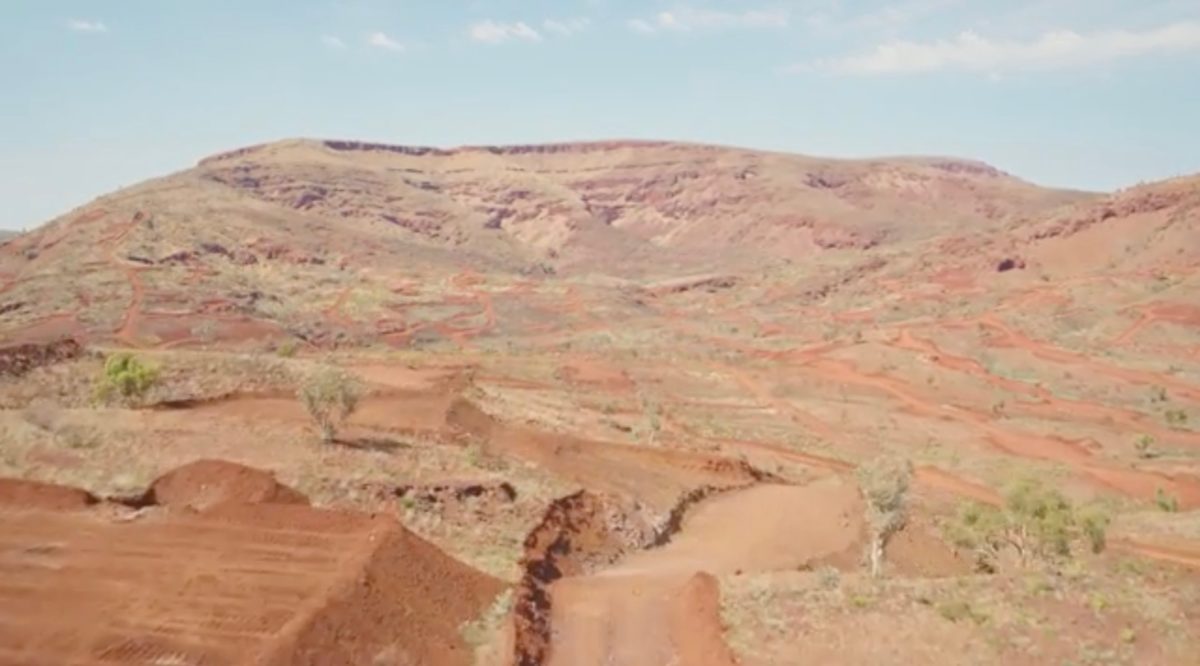Mining behemoth Rio Tinto has approved a $98 million solar + battery energy storage system at its Koodaideri mine in the Pilbara, Western Australia (WA). The company is investing in solar PV and energy storage as it looks to reduce carbon emissions from its coal operations.
This project will be the first time Rio Tinto has actually owned a solar-facility (excepting its 6.7 MW ARENA supported solar PV farm at its remote bauxite operation in Weipa, Queensland), a 34 MW solar PV plant set to supply approximately 65 percent of the Koodaideri iron ore mine’s power demands. It is estimated that the combined project could lower Rio Tinto’s carbon dioxide emissions by 90,000 tonnes annually, the equivalent of removing 28,000 cars from the road.
With construction expected to begin later this year and conclude in 2021, the project will consist of an estimated 100,000 panels accompanied by a 12 MWh lithium-ion battery energy storage system (ESS). The ESS will be located in the town of Tom Price (named after Thomas Moore Price, former vice-president of U.S. steel company Kaiser Steel, because, well, why not?), where it will provide spinning reserve capacity for the entire Pilbara power network.
Rio Tinto Iron Ore chief executive Chris Salisbury said the solar PV plant is a significant milestone for the company, “and an important step in reducing our carbon footprint in the region.”
“We are investigating additional renewable energy options in the Pilbara,” continued Salisbury, “as well as other opportunities to reduce emissions across our entire global portfolio, building on the 43 percent reduction in absolute greenhouse gas emissions since 2008.”
Of course, Rio Tinto is not the only mining giant to make the switch to renewables in the Pilbara. In a landmark agreement with Alinta Energy late last year, it was announced that Fortescue Metals would use solar power for up to 100% of its daytime energy needs at its Chichester Hub iron ore operation.
Two other Western Australian mines have announced their shift to renewables earlier this year. Agnew Gold Mining is installing an 18 MW wind farm, a 10,000 panel 4 MW solar farm and a 13 MW / 4 MWh battery storage alongside a 16 MW gas engine power station, while a 2.5 MW wind farm, a 1 MW solar farm and a 2 MW / 0.5 MWh battery which will provide up to 70% of the electricity needs of a nearby garnet mining and processing plant run by GMA Garnet.
The Koodaideri iron ore mine is a $AU3.5 billion investment for Rio Tinto.
This content is protected by copyright and may not be reused. If you want to cooperate with us and would like to reuse some of our content, please contact: editors@pv-magazine.com.









4 comments
By submitting this form you agree to pv magazine using your data for the purposes of publishing your comment.
Your personal data will only be disclosed or otherwise transmitted to third parties for the purposes of spam filtering or if this is necessary for technical maintenance of the website. Any other transfer to third parties will not take place unless this is justified on the basis of applicable data protection regulations or if pv magazine is legally obliged to do so.
You may revoke this consent at any time with effect for the future, in which case your personal data will be deleted immediately. Otherwise, your data will be deleted if pv magazine has processed your request or the purpose of data storage is fulfilled.
Further information on data privacy can be found in our Data Protection Policy.